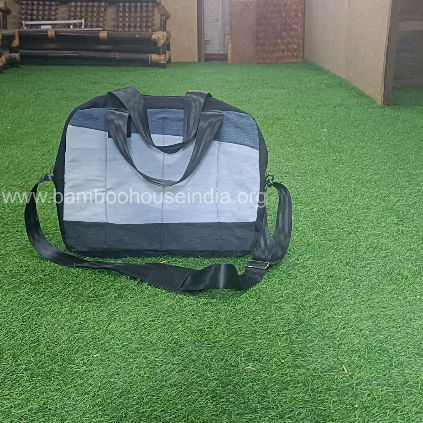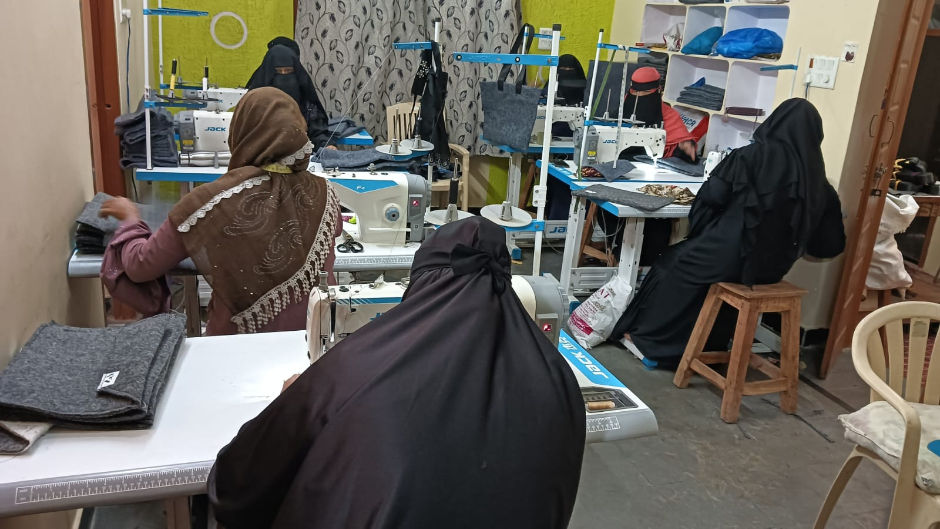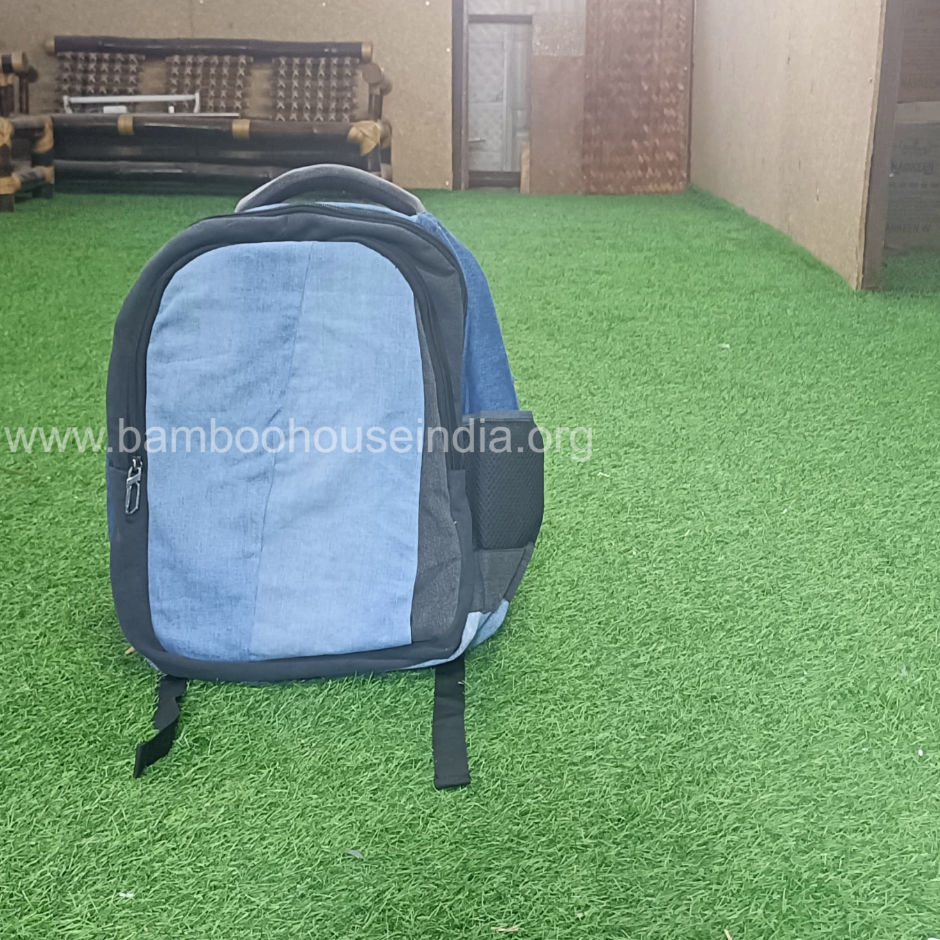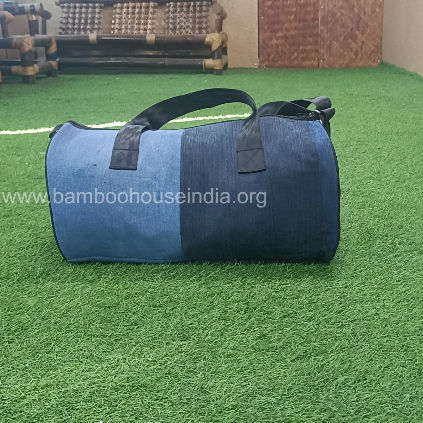Empowering Refugee Women by Upcycling Jeans into Livelihood
- Bamboo House India

- Apr 11
- 3 min read
Updated: Jul 1
Hyderabad based social enterprise BAMBOO HOUSE INDIA, is working towards empowering woman refugees by turning discarded jeans into eco-friendly bags. This “upcycled project” seeks to convert discarded jeans into symbols for women empowerment through upcycling.
As part of this project woman refugees are trained to transform end-of-life jeans into valuable lifestyle bags. This initiative aims to solve the important problem of textile waste management while simultaneously uplifting marginalized groups by addressing poverty through circular economy livelihoods.
From Waste to Worth: The Genesis of a Sustainable Movement
A pair of jeans consumes requires around ten thousand liters of water. While jeans are a staple of fashion everywhere, their environmental impact is monumentally drastic. Bamboo House India is keenly aware of the social consequences of this waste and set out to transform waste materials into useful products.”
To achieve this goal, Bamboo House India started collecting denim waste from the city of Hyderabad, and to accompany this vision, they started training nearly fifty underprivileged women to craft products like laptop bags, duffle bags, messenger bags, and diaries.” These initiatives allow women refugees in Hyderabad to reclaim their dignity and inject purpose, community, and income into their lives through transforming waste into value”

Empowering Women through upcycled jeans : Stories of Transformation
This program is fundamentally rooted in the personal stories and experiences of the women artisans. As some of them are exiled from conflict-ridden areas, they faced great challenges for employment and social inclusion. Through the livelihood training in upcycling offered by Bamboo House India, these women have developed skills in design and craftsmanship. Apart from achieving financial stability, they have access to community support and have reclaimed their identity.

Crafting Conscious Fashion: The Art of Upcycling
Recycling old jeans into upcycled fashion bags is a painstakingly creative endeavor. Bamboo House India meticulously procures discarded jeans and the women artisans wash the jeans before stitching them into bags, maintaining the intricate patterns and colors. Additionally, fabric is designed and crafted into different styles of sustainable bags that are constructed with both form and function in mind. Not only does this approach minimize textile waste, but it also enhances the uniqueness of every item.

Impacting Lives: Beyond the Workshop
The effect of this initiative goes far beyond the artisans. Buyers of these upcycled bags from India are directly supporting sustainable fashion as well as social inclusion. Each bag embodies a story of resilience and metamorphosis, linking the buyer to the artisan's path. In addition, this model advances a circular economy in India where waste is viewed as raw material reimagined, fostering environmental responsibility in conjunction with community growth.

The Broader Vision: Circular Economy and Social Inclusion
Bamboo House India showcases an example of how we can be partners in environmental sustainability and social empowerment. Through participatory approach of involving marginalized women within the realms of circular economy livelihoods and entrepreneurship, we are not only diverting waste from dumping yards but also countering social norms and advocating for gender equity.
We are hoping that our holistic approach will inspire others to take this as a cue to deal with environmental issues while uplifting marginalized communities.
Conclusion: Stitching a Sustainable Future
In today's world facing environmental problems and social inequality, projects like converting jeans from discarded denim stands as a ray of hope. By reusing old denim, we're connecting ideas of sustainability, empowerment, and community development. Every bag we are making isn't just something to carry stuff in; it shows what people can do and how making thoughtful choices can change things.
Learn more about our green and circular economy livelihood consulting and how you can contribute.






Comments